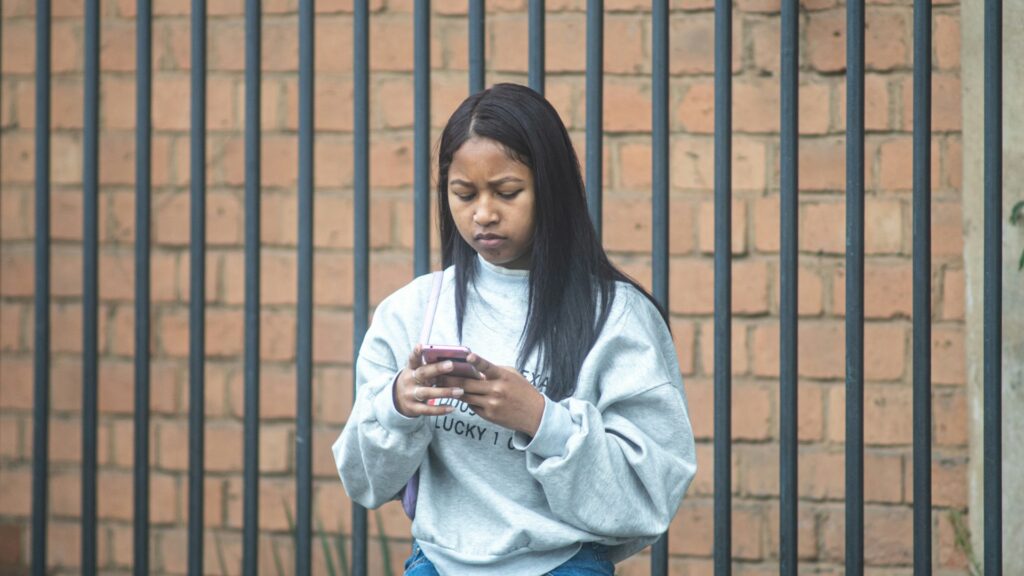We’ve all said it—“I’m fine”—even when we’re really anything but.

Sometimes it’s easier than explaining what’s actually going on. However, do this often enough, and it can leave you feeling even more isolated. You don’t have to pour your heart out every time someone asks how you’re doing, but having a few honest alternatives can help bridge that gap between silence and oversharing. Here are some honest things you can say instead, depending on who you’re talking to and what you’re up for.
1. “I’ve been better, but I’m getting through it.”

This keeps things real without diving too deep. It acknowledges that you’re not at your best, but you’re still managing. It’s especially helpful if you don’t want to shut down the conversation but aren’t ready to open the floodgates either. It also invites support if the other person is emotionally available. They might ask follow-up questions, or they might just give you a nod and some space, which can be exactly what you need.
2. “I’m a bit all over the place, to be honest.”

This one feels honest but casual. It suggests things are messy or overwhelming, without forcing you to explain the whole story. It’s useful when your emotions are a bit tangled and hard to sum up neatly. It also leaves the door open—if someone wants to check in later or ask more, they can. However, it doesn’t demand anything of you in the moment.
3. “I’m kind of struggling, but I appreciate you asking.”

Sometimes, just admitting you’re struggling is enough. This one is calm and respectful—it gives someone a glimpse into how you’re feeling while also showing gratitude for their care. It can also remind the person that their check-in meant something. That little bit of validation goes both ways, and sometimes it helps you feel a little less alone.
4. “It’s a tough day, but I’m hanging in there.”

This is good when you’re in the middle of a rough patch but don’t want to get into it. It keeps the tone hopeful while still being honest about what you’re feeling. It also helps when you want to keep conversations light without pretending everything is perfect. You’re giving yourself permission to not be okay, without giving a full breakdown.
5. “I’m not great right now, but I’m trying.”

Trying counts, and saying this shows that you’re aware of how you’re feeling and making an effort to move through it. It’s a vulnerable statement, but it also has strength in it. It reminds both you and the person you’re talking to that being in a bad place doesn’t mean you’ve given up. You’re just being honest about where you’re at—and that’s brave in itself.
6. “Honestly, I don’t know how I feel.”

Sometimes that’s the truest answer. Emotions can be blurry, complicated, or completely numb, and this gives you a way to say that out loud without feeling like you’re failing to explain yourself. It also opens space for someone to sit with you without needing a neat label on your experience. You don’t always have to have the words. You just have to show up honestly.
7. “I’m managing, but it’s not easy.”

This one acknowledges effort. It says, “I’m coping,” but doesn’t pretend it’s all fine behind the scenes. It’s a way to express resilience and struggle at the same time. It also lets people know you’re not asking for rescue—you just want to be understood. That’s a subtle but powerful difference, especially in conversations where people mean well but don’t always know how to help.
8. “I could use a distraction if you’re up for chatting.”

Instead of diving into feelings, this lets you signal that you’re not okay, and that you’d love some connection without making it a deep emotional talk. It’s perfect when you just want a break from your own brain. It also gives the other person a clear way to support you, especially if they’re not sure what to say. Sometimes the best help is just keeping you company and chatting about anything else.
9. “I’m overwhelmed, but I’m doing what I can.”

Overwhelm can show up in so many ways—mental, emotional, physical. Saying this out loud can feel like a small release valve. It gives people a snapshot of what’s going on without needing to unpack the whole situation. It’s a helpful one to use with coworkers or acquaintances when you want to be human without oversharing. People tend to respect it, and it’s a reminder that being overwhelmed doesn’t mean you’re weak—it just means you’re human.
10. “Things are rough, but I’ve got support.”

When you’re in a hard place, but feeling held by other people, this response reinforces that you’re not alone. It tells people, “I’m struggling, but I’ve got people.” It can also gently let someone off the hook if you don’t need them to fix anything—just to know where you’re at. It’s a nice mix of vulnerability and assurance.
11. “I’m emotionally tired, but I’m here.”

This one’s soft but real. It shows that you’re showing up even if you’re running on fumes—and that takes courage. It’s also a subtle way to set expectations without disappearing completely. It’s a useful thing to say to friends or family when you want to be included but don’t have the emotional energy to be your usual self. People tend to appreciate the honesty.
12. “I’m not up for talking about it yet, but thank you for asking.”

This sets a boundary without shutting people out. You’re letting someone know you’re not doing great, but also that you’re not in a place to explain it all right now. It helps people respect your space while still understanding something’s going on. It’s a solid middle ground between isolation and oversharing.
13. “I’m having one of those days.”

Simple, vague, and relatable. Most people will get what you mean without needing further explanation. It gives just enough info to be real without going deep. It’s also good when you want to keep things moving but don’t want to pretend you’re on top form. It acknowledges the struggle in a light way, which can be all you need in that moment.
14. “I’m a bit low today, but I’ll be okay.”

This one hits that sweet spot of honesty and hope. It says, “Today’s not great, but I’m not stuck here.” It’s especially good when you want to gently check in with someone without worrying them too much. It also helps you remind yourself that rough days pass. It’s not about forcing optimism—it’s just naming the dip and believing in a bounce back.
15. “It’s hard to talk about, but I’m working on it.”

For those moments when you want to be honest about your inner world but you’re not ready to spill everything. It shows emotional responsibility—you’re not ignoring the problem, you’re just handling it privately. This can be especially helpful in close relationships where people want to support you but don’t always know how. It reassures them that you’re on it, even if you can’t share all the details yet.
16. “Honestly, I could use a bit of support today.”

Sometimes the best thing you can do is ask directly. It doesn’t have to be dramatic or heavy—just a clear, honest ask. Most people want to help, they just don’t always know when or how to step in. Saying this gives people a chance to show up for you. And it gives you a chance to feel seen and supported, which can make a huge difference on a rough day.


